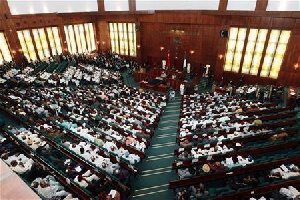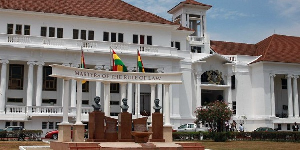Details have emerged of how the bill by two lawmakers in the sixth Delta State House of Assembly to put an end to killings by rogue herdsmen in the state was killed by political forces allegedly in a bid not to pitch Governor Ifeanyi Okowa against President Muhammadu Buhari ahead of the 2019 governorship election in the state.
The bill christened, ‘Delta State Anti-Grazing Bill’, was sponsored by the lawmaker representing Ughelli South constituency and co-sponsored by a former member representing Ethiope East constituency, Hon. Evance Ivwurie, who was also the House Committee Chairman for Agriculture and Natural Resources.
The 6th Assembly under the leadership of Rt. Hon. Monday Igbuya, had passed first and second reading and subsequently went through public hearing before Igbuya was impeached.
Speaking on the exercise, a current lawmaker in the House, attributed the death of the bill to pressure on the House not to pass it after a senior member of the State Advisory Council spoke against it saying “if passed, the bill may likely work against the second term ambition of Governor Okowa who was gunning for a second term in office.”
The lawmaker, who spoke on the condition of anonymity, said: “The bill was actually worked on and presented to the House during the height of herdsmen attacks on the people of Abraka and Eku area in Ethiope East local government area of the state.
“The public hearing for the bill took place and on the day the bill was to be passed after the public hearing, it came back to the House and went through the Committee of the Whole and was called by then-Speaker, Rt. Hon Monday Igbuya, and we took the matter in the bill clause-by-clause being a 22-clause bill."
“However, we stopped at clause 11 on that day and adjourned to the next day to complete and pass it when Igbuya was removed as Speaker. From then, it was never listed and or passed owing to some political reasons until the end of the 6th Assembly.”
Speaking further, the source said, “However, we later discovered that in a bid to play safe with the passage of the bill in order not to offend the All Progressives Congress, APC-led Federal Government of President Buhari which was, at that time, pushing the Grazing Reserves Bill at the federal level, a senior member of the State Advisory Council warned that the bill should not be passed and sought the cooperation of the current speaker, Rt. Hon Sheriff Oborevwori, since it was capable of clogging the chances of Okowa’s return to power in 2019."
“Meanwhile, it will interest you to know that when the bill came back to the House at the Committee of Whole, Sections 1-8 were passed while Sections 9-20 were to be considered and passed but, on that fateful day, Igbuya was impeached.”
Speaking on the essence of the bill, Ivwurie, while absolving Governor Okowa of complicity in the death of the bill, expressed regret on the inability of the House to pass the bill into law.
He said: “The governor was never against the bill to the best of my knowledge. It just was never listed and I know that I fought tooth and nail for it be listed and subsequently passed, but just never was."
“It would have been a strong legal instrument to curtail the activities of herdsmen because it was meant to provide legal teeth to ensure that every border surrounding Delta State through which herdsmen come into the state is monitored."
“As stipulated in the bill when passed into law, these herdsmen and their herds are expected to be registered, numbered and can only graze on apportioned ranches which will be established in all the local government areas particularly in affected local government areas of Ughelli North and South, Ethiope East, Ndokwa and Ika area."
“Also, the bill was supposed to recognize cattle grazing and everything that comes with it as a personal business, because what is going on is that there is nobody to checkmate the external inflow of these herdsmen and their cattle into Delta State and also the movement of these herders within the state."
“When passed into law, any herdsman that is not registered with the state Ministry of Agriculture will be known and referred to as a criminal Fulani herdsman. This was supposed to be a very simple exercise that requires leadership having launched similar exercise in my constituency as a lawmaker.”
Contacted for an update on the bill, Chief Press Secretary to the Speaker, Dennis Out, declined comments on the matter.
Africa News of Monday, 24 February 2020
Source: vanguardngr.com













